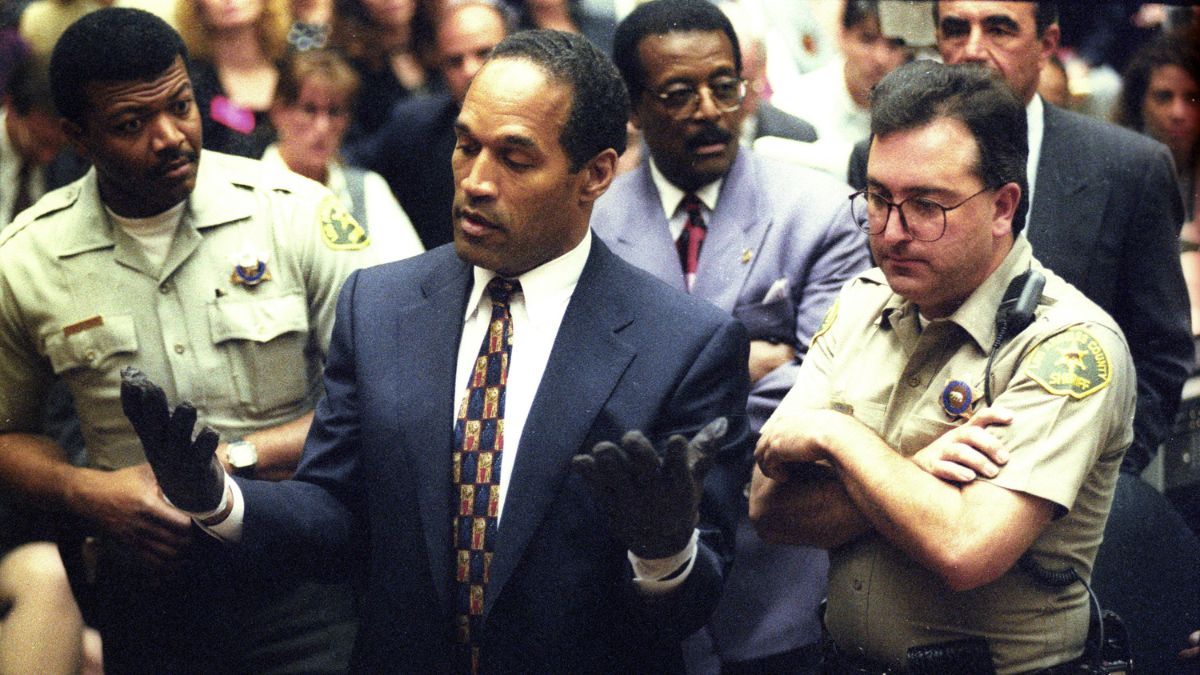On October 3, the world witnessed one of the most publicised verdicts in American legal history when OJ Simpson was acquitted of murder charges in 1995, an event that forever changed public perceptions of the justice system and media.
Additionally, October 3 marked milestones such as the reunification of Germany in 1990 after decades of division during the Cold War, the first successful British atomic weapons test in 1952, and the debut of The Guinness Book of Records in 1955, a publication that went on to become a global phenomenon.
This article, part of Firstpost’s History Today series takes a closer look at these events.
OJ Simpson acquitted
On October 3, 1995, a dramatic chapter in US legal and cultural history concluded when former football star and actor Orenthal James (OJ) Simpson was acquitted of the murders of Nicole Brown Simpson and Ronald Goldman.
The trial, which lasted 11 months, gripped the nation and became widely known as “The Trial of the Century.”
The case began on June 12, 1994, when Nicole Brown Simpson and Ronald Goldman were found brutally murdered outside Nicole’s Los Angeles home.
Nicole was Simpson’s ex-wife, and their tumultuous relationship had been marred by allegations of domestic abuse.
Goldman, a 25-year-old restaurant waiter, was a friend of Nicole’s and was delivering a pair of glasses she had left at a restaurant.
Simpson quickly became the prime suspect.
Two days later, in a now-infamous event, Simpson led police on a slow-speed chase through Los Angeles in a white Ford Bronco, driven by his friend Al Cowlings.
This televised pursuit was watched live by an estimated 95 million people, interrupting broadcasts of major sporting events and creating a surreal moment in American pop culture.
The trial began in January 1995, presided over by Judge Lance Ito. The prosecution, led by Marcia Clark and Christopher Darden, argued that Simpson had a history of domestic violence and presented evidence they claimed tied him to the murders.
This included blood samples, hair, and fibres allegedly linking Simpson to the crime scene, as well as a pair of bloody gloves — one found at the crime scene and the other at Simpson’s estate.
The defence, known as the “Dream Team,” was led by Johnnie Cochran, Robert Shapiro, F Lee Bailey, and Robert Kardashian, among others.
Their strategy centred on creating reasonable doubt, claiming that the Los Angeles Police Department had mishandled evidence and suggesting that key detectives, particularly Mark Fuhrman, were racially biased and possibly planted evidence.
The trial took place against a backdrop of racial tension in Los Angeles, particularly following the 1992 LA riots sparked by the Rodney King incident.
The defence argued that Simpson was a victim of systemic racism, a point that resonated deeply with many Americans.
Cochran’s now-famous line, “If it doesn’t fit, you must acquit,” referred to Simpson struggling to put on the allegedly blood-soaked glove during a key courtroom demonstration.
Public opinion was sharply divided along racial lines. Polls at the time showed that a majority of Black Americans believed Simpson was innocent, while most white Americans believed he was guilty.
The trial became a referendum not only on Simpson’s guilt but also on issues of race, celebrity privilege, and the credibility of law enforcement.
On October 3, 1995, the jury, after deliberating for less than four hours, delivered its verdict: not guilty on both counts of murder.
The reaction was unprecedented.
Across the US, workplaces and schools paused to watch the verdict live. In some communities, cheers erupted, while in others, there was visible anger and disbelief. The verdict highlighted the deep racial and social divisions in American society.
Nicole’s and Goldman’s families were devastated.
In a later civil trial in 1997, Simpson was found liable for the wrongful deaths of Nicole Brown Simpson and Ronald Goldman and was ordered to pay $33.5 million in damages.
The OJ Simpson trial revolutionised television coverage of the legal system. Court TV and 24-hour news networks like CNN experienced a surge in viewership as millions tuned in daily.
The trial also sparked debates about whether cameras should be allowed in courtrooms.
Moreover, the case influenced American pop culture, inspiring countless books, documentaries, and TV shows. The 2016 FX miniseries The People v. OJ Simpson: American Crime Story brought renewed attention to the trial, introducing its complexities to a younger generation.
The trial also left lasting questions about celebrity privilege, racial bias in law enforcement, and the effectiveness of the US criminal justice system.
Simpson’s later life remained controversial. In 2007, he was involved in an armed robbery and kidnapping case in Las Vegas and was sentenced to prison, serving nine years before being released on parole in 2017.
He passed away on April 10, 2024 after a long battle with prostate cancer.
Three decades after the verdict, the OJ Simpson trial remains a pivotal moment in American history.
Germany reunified
October 3, 1990, marked Germany’s official reunification, ending decades of division between East and West Germany following World War II.
The division began after 1945 when the Allies split Germany into four zones controlled by the US, the Soviet Union, the UK, and later, France.
As Cold War tensions escalated, two separate states emerged: the Federal Republic of Germany (West Germany) and the German Democratic Republic (East Germany).
The Berlin Wall, erected in 1961, became a powerful symbol of the Iron Curtain separating Eastern and Western Europe.
Its fall on November 9, 1989, set the stage for reunification. After months of negotiations, October 3, 1990, was declared “Unity Day”, a national holiday celebrating the restoration of a single German state.
The reunification reshaped European politics, contributing to the eventual expansion of the European Union and Nato eastward.
Today, October 3 remains a public holiday in Germany known as the Day of German Unity.
First British atomic weapons test
On October 3, 1952, Britain successfully conducted its first atomic bomb test, codenamed Operation Hurricane, off the coast of Western Australia.
This made the UK the third country, after the United States and the Soviet Union, to develop nuclear weapons.
The test involved detonating a plutonium implosion bomb inside the hull of a Royal Navy frigate to simulate the effects of a nuclear weapon smuggled into a port by an enemy.
The explosion confirmed Britain’s place as a major nuclear power and demonstrated its military independence amid Cold War tensions.
However, the test also raised ethical concerns and environmental debates, particularly regarding the impact of radiation on nearby ecosystems and indigenous communities in Australia.
The event marked a turning point in the global arms race that would intensify throughout the 1950s and 1960s.
The Guinness Book of Records debuts
On October 3, 1955, The Guinness Book of Records was first published in Britain. The idea originated with Sir Hugh Beaver, managing director of the Guinness Brewery, who wanted a reference guide to settle pub arguments about facts and records.
Compiled by brothers Norris and Ross McWhirter, the book quickly gained popularity, becoming a global sensation.
Today, known as Guinness World Records, it remains one of the most widely recognized and published books worldwide, chronicling human achievements and oddities across diverse fields.
Its debut marked the beginning of a cultural phenomenon that continues to capture the public’s imagination nearly seven decades later.
With inputs from agencies


)

)
)
)
)
)
)
)
)



